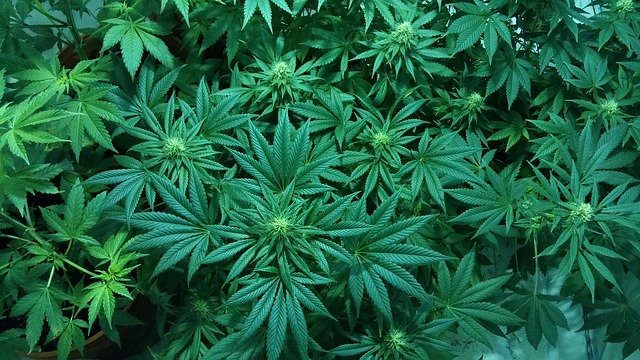
It's beautiful, isn't it? Cannabis is aesthetically pleasing, useful as medicine, and good for enjoyment. Nevertheless, many Christians are taught to believe that it's sinful to enjoy recreationally. For years, I was led to believe the same thing, but I have since abandoned such erroneous thinking and have come to appreciate marijuana with a clean conscience and much thanksgiving.
There are various and sundry reasons that Christians give for their admonitions against cannabis use, and in this post, I'm going to tackle one: namely, the "it makes you high" objection. It goes something like this: "The Bible commands sobermindedness, and marijuana makes people high!"

Indeed, the Bible does command sober-mindedness, and marijuana does make people "high." However, what do either of those things mean? A previous post mentions the fact that a responsible enjoyment of alcohol is viewed positively in Scripture. It cites Psalm 104:15, which states that wine, as a blessing from God, gladdens the heart. Objections to the fact that the verse refers to real, alcoholic wine are dealt with in the first two books that are recommended therein.
Since the Scriptures speak favorably of a responsible enjoyment of alcohol, allow it to be plainly stated that the Bible's admonitions to be sober-minded don't preclude a less-than-medical usage of psychoactive substances. If they did, a responsible enjoyment of alcohol would be ruled out, and for that matter, so would would caffeine usage. But God's people have enjoyed alcohol all throughout church history, and Christians all around the world alter their experience with caffeine daily. Sobermindedness is better seen as an ability to make sound judgments and exercise self-control.

Being "high" on cannabis doesn't preclude sobermindedness, and experience tells me that it can instead facilitate it. Indeed, cannabis has enabled me to think deeply, logically, and carefully about any number of things, especially during times of stress. Other times, it has ironically increased my physical performance and endurance during exercise, affording me razor-sharp focus and a determination to push myself further and further, enjoying every minute of it. So much for the "stupid, lazy stoner" stereotype...
So what does being "high" refer to, and why is it a bad thing? The psychoactive effects of cannabis are highly subjective. There are similarities in experience, but while some people might want to smoke themselves into oblivion and "escape" reality (a near impossibility for regular smokers), others simply want to enjoy the positive effects of the herb. If the term "high" simply refers to the generalized effects of marijuana usage altogether, and if it's supposed to be a bad thing, why not condemn people for being "wired" on coffee?
All images are courtesy of pixabay.com.
The goal of every true Christian is Christlikeness. Christ Himself did not partake of cannabis nor did He endorse it. So why should His followers?
He didn't endorse caffeine consumption, either. Christlikeness doesn't mean abstention from morally legitimate pleasures.
@groundbreaker: How do you know that? Were you there? Do you know what Jesus did every second of his life? No, you don't.
Genesis 1:29 - And God said, Behold, I have given you every herb bearing seed, which [is] upon the face of all the earth, and every tree, in the which [is] the fruit of a tree yielding seed; to you it shall be for meat.
One of the better commentaries I've read. Kudos to you! Let me add a little about drunkenness from the TDNT. I'll post a link, but don't know if it will work...
From TDNT-
The fundamental difference between early Christian fullness of the spirit and the orgiastic enthusiasm of Hellenism is indicated in Eph. 5:18. The life and liturgy of Christians are not marked by sensual ecstasy or Bacchantic frenzy (μεθυσκεσθαι οινω) but by infilling with the Spirit (πληρουσθε εν πνευματι). The distinction could hardly be more succinctly expressed: orgiastic enthusiasm on the one side, and on the other the fullness of the Spirit which finds liturgical expression in praise and thanksgiving (5:18-20) and practical expression in αγαπη (5:21- 6:9). In this respect Paul emphasizes explicitly that the fact that μεθυσεσθαι is not the result of αγνωσια, as the Hermetic writings and Philo suppose, but of ασωτια, i.e. a corrupt and profligate nature.
https://christiancfellowship.wordpress.com/2016/08/26/drunkenness/